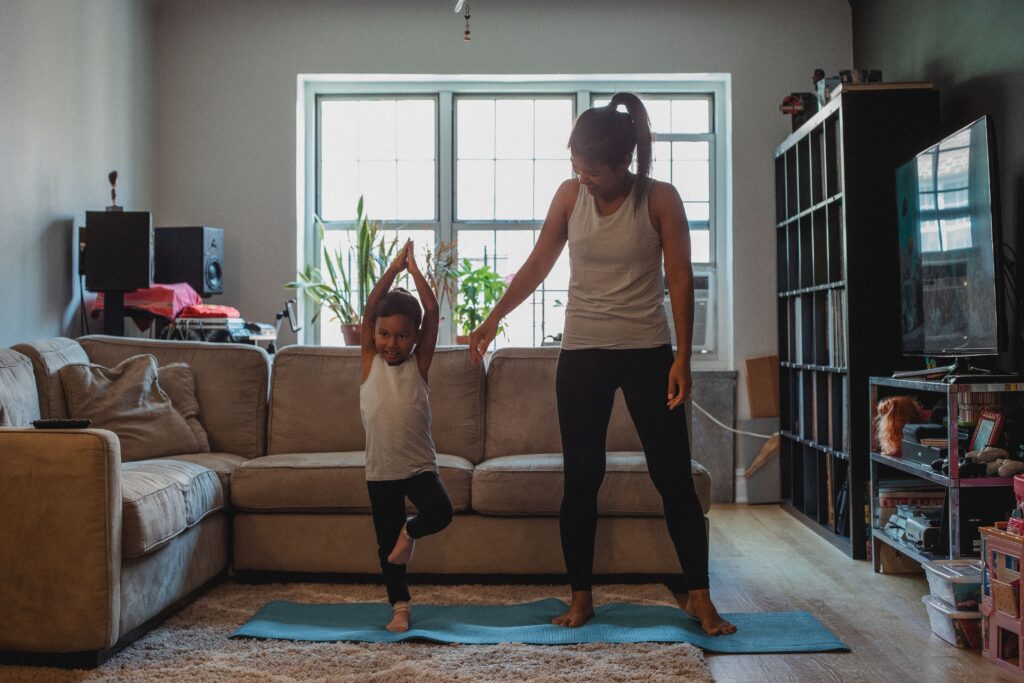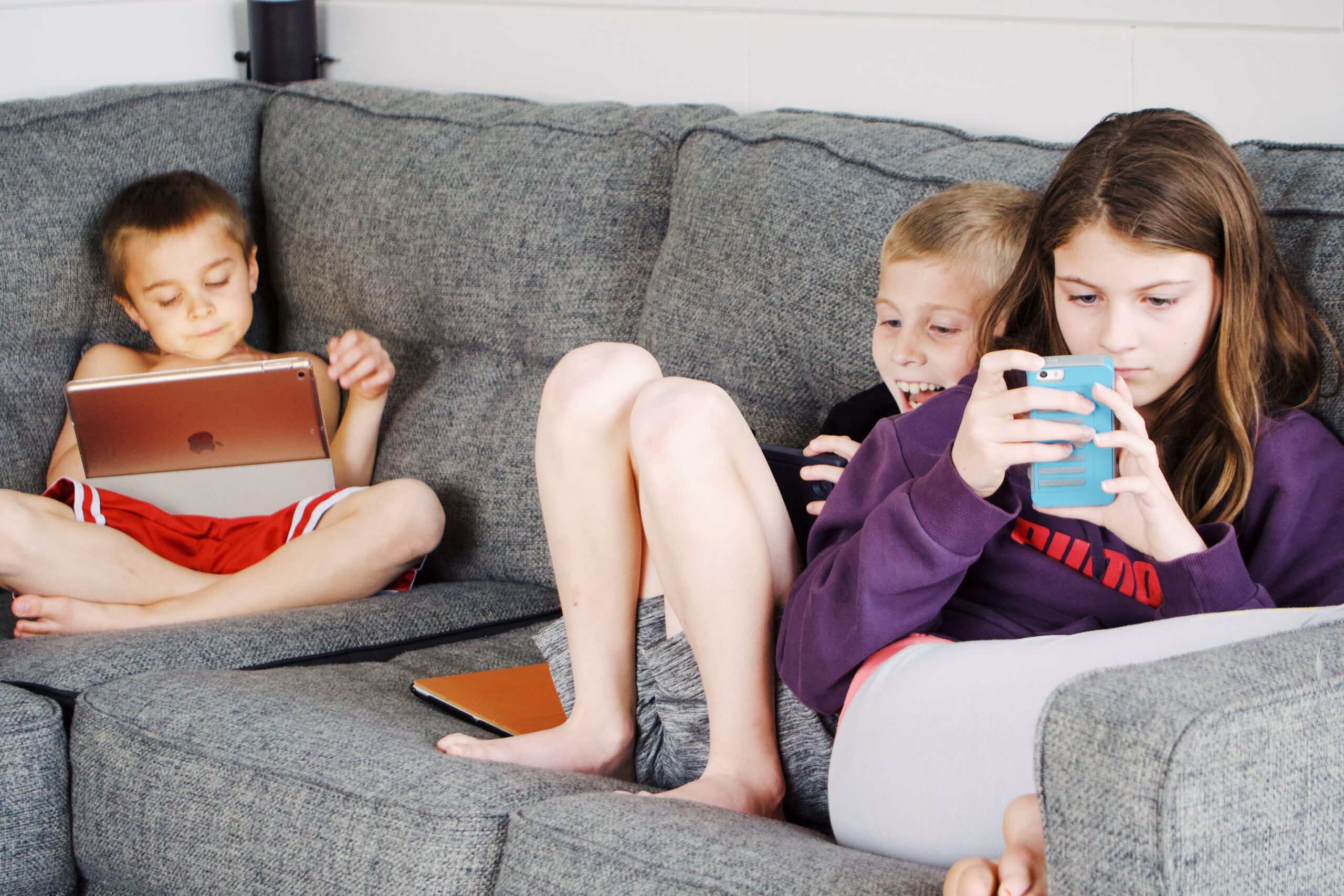In today’s digital age, kids have access to a wide range of technology devices, from smartphones to laptops, tablets, and gaming consoles.
While technology has its benefits, excessive screen time can have negative impacts on kids’ development.
In this article, we’ll take a look at the impact of screen time on kids’ development and provide tips for balancing it with other activities.
The Recommended Amount of Screen Time for Kids:
The American Academy of Pediatrics (AAP) recognizes that screens and digital devices are a part of modern life and can offer many benefits to children, such as educational opportunities and social connections. However, excessive screen time can have negative impacts on a child’s physical and mental health, as well as their development.
For children between the ages of 2 and 5, the AAP recommends that screen time be limited to high-quality programming that is educational and age-appropriate. Parents are also encouraged to watch programs with their children, to help them understand what they are watching and to promote family interaction.
For children between the ages of 6 and 18, the AAP recommends that screen time be balanced with other activities, such as physical activity, social interaction, and creative play. It is also recommended that parents establish clear rules around screen time and model healthy screen habits themselves.
While the these recommendations are useful guidelines, it’s important for parents to assess their own child’s needs and balance screen time with other activities in a way that works best for their family.
We are well aware of the fact that excessive screen time has a number of negative impacts on kids’ development, and here we are going to list some of them for you.
In our daily lives, we come across a lot of people who are always sticking to their smartphones or tablets. Such people are or will be suffering from one kind of problem or another.
Excessive screen time can lead to physical health problems, including poor posture, eye strain, headaches, and weight gain. Sitting in front of a screen for prolonged periods of time can also lead to decreased physical activity, which can contribute to obesity and other health problems.
- Obesity: spending too much time sitting in front of screens can lead to a more sedentary lifestyle, which in turn can increase the risk of obesity and related health problems.
- Poor posture: staring at screens for extended periods of time can cause neck and back pain and contribute to poor posture.
- Eye strain: prolonged screen time can cause eye strain, headaches, and blurry vision.
- Sleep disruption: the blue light emitted by screens can disrupt the body’s natural sleep-wake cycle, leading to difficulty falling asleep and poor sleep quality.
- Delayed physical development: excessive screen time can lead to less physical activity and potentially delay the development of motor skills in young children.

Mental Health
Excessive screen time can have negative impacts on kids’ mental health. It can lead to feelings of anxiety, depression, and social isolation. It can also interfere with sleep patterns, leading to problems with mood, concentration, and learning.
- Poor social skills: excessive screen time can reduce the amount of face-to-face interaction a child has with peers and adults, which can lead to poor social skills and difficulty with emotional regulation.
- Increased risk of depression and anxiety: studies have linked excessive screen time with increased risk of depression and anxiety, potentially due to disrupted sleep patterns, exposure to negative content, or decreased time for physical activity.
- Difficulty with attention and focus: excessive screen time can lead to difficulty with attention and focus, which can impact academic performance and other areas of life.
- Poor self-esteem: social media and other online platforms can create pressure for children to compare themselves to others, leading to poor self-esteem and feelings of inadequacy.
- Addiction: excessive screen time, especially with video games or social media, can create a compulsive need to check devices, leading to addiction and poor impulse control.\
Cognitive Development
Excessive screen time can have negative impacts on kids’ cognitive development. It can interfere with the development of language and communication skills, as well as attention span and problem-solving skills. It can also lead to decreased creativity, as kids are exposed to pre-packaged, limited content rather than having the opportunity to use their imagination and create their own content.

- Impaired cognitive development: studies suggest that excessive screen time, especially in young children, can impair cognitive development and affect brain structure and function.
- Reduced attention span: excessive screen time can lead to shorter attention spans and difficulty with sustained attention, which can negatively impact academic performance and other areas of life.
- Decreased problem-solving skills: while technology can aid in problem-solving, excessive screen time can decrease a child’s ability to think creatively and critically solve problems without digital assistance.
- Poor academic performance: excessive screen time, especially before bedtime, can disrupt sleep and impact academic performance, leading to difficulty in learning and retaining information.
- Risk of addiction: excessive screen time can lead to addiction, which can negatively impact a child’s ability to control their behavior, limit their interests, and reduce time spent on other activities essential for cognitive development.
Above we have listed 3 of the most commonly known negative implications of screen time on a kid’s development. But every problem comes with a solution, so here we will suggest some ways/tips for parents/guardians how to balance their kids’ screen time.
Tips for Balancing Screen Time with Other Activities
Set Limits
Set limits on the amount of screen time kids are allowed each day. Encourage kids to spend their free time engaging in other activities, such as reading, playing outside, or doing arts and crafts.
Create Screen-Free Zones
Designate areas in your home as screen-free zones, such as the dinner table or bedroom. Encourage kids to spend time in these areas engaging in other activities, such as reading, playing games, or talking with family members.
Encourage Active Play
Encourage kids to be active and engage in physical activity each day. This could mean playing outside, playing sports, or participating in physical activities such as dance or martial arts.
Engage in Family Activities
Engage in family activities that don’t involve screens, such as playing board games, going for a walk, or cooking together. This will provide an opportunity for kids to interact with family members and develop social skills.

Limit Screen Time Before Bed
Limit screen time before bed, as the blue light from screens can interfere with sleep patterns. Encourage kids to read a book, listen to music, or do some light stretching instead.
Conclusion
Excessive screen time can have negative impacts on kids’ development, including physical health problems, mental health issues, and cognitive development. It’s important for parents and caregivers to balance screen time with other activities to ensure that kids are able to develop to their full potential. By setting limits, creating screen-free zones, encouraging active play, engaging in family activities, and limiting screen time before bed, parents can help their kids develop a healthy relationship with technology and ensure that they are able to thrive. For some infographic information on this topic, you can always refer to youtube.
Why screen time is not good for kids?
While some screen time can be beneficial for children, excessive screen time can have negative effects on their development and well-being.
Physical health
Sleep
Social development
Mental health
Cognitive development
How does too much screen time affect a child’s mental health?
Excessive screen time can have negative effects on a child’s mental health. Here are some ways in which this can happen:
Disrupting sleep patterns
Increasing risk of depression and anxiety
Reducing social skills
Encouraging sedentary behavior
Addiction and compulsive behavior
